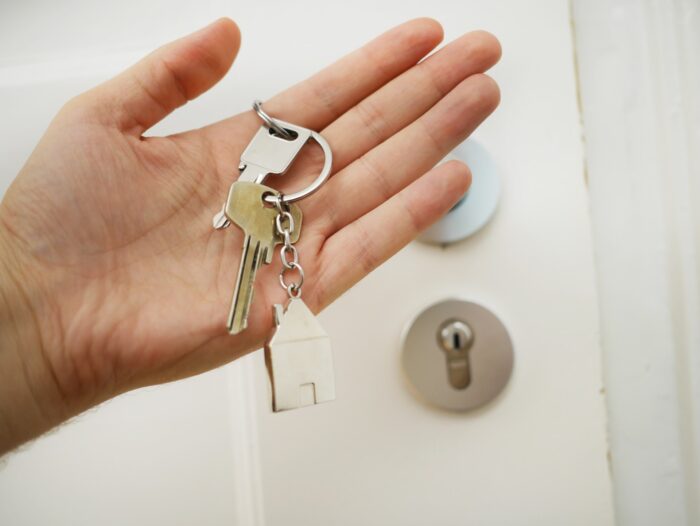Blockchain is a buzzword taking over the tech world across all industries, and real estate is no different. Typically associated with cryptocurrency and NFTs (non-fungible tokens), blockchain tech has the power to revolutionise the way businesses handle data, manage transactions, pay employees, and much more. Throughout this article, we’re going to take a look at several use cases for blockchain in real estate.
Smart Contracts
Smart contracts are one of the most widely adopted blockchain technologies. Within the real estate industry, smart contracts are removing the need for lengthy paperwork to be carried out, with sales being made instantly online. Thanks to the nature of blockchain technology, all data contained within a smart contract are much more transparent and secure, which is a win for both parties.
If you take a look at ChromaWay, in partnership with Swedish telecommunication company Telia, you find innovative advances dating back to 2016. Their initiation was supported by the Swedish government which sought to transfer land registry services onto a blockchain infrastructure.
Tighter Control and Security
Blockchain works by verifying and encrypting changes (transactions), which are then viewable across the entire blockchain network. Managing information and transactions this way removes the need for third parties and reduces the opportunity for fraudulent activity.
There is still plenty of ground to cover when it comes to blockchain adoption across all industries, likely as a result of misinformation and lack of education. However, Statista forecasts global spending on blockchain solutions to reach around $19.9 billion by 2024. For comparison, global spending on blockchain solutions in 2021 was $6.6 billion.
Transparent Data Handling
People are more concerned about how businesses manage data than ever before, with countless breaches hitting mainstream news. Fortunately, thanks to blockchain technology, data can be stored on a secure ledger and only viewable by those with access to the relevant keys. When a person decides to revoke access to personal data, they can remove it from the blockchain system forever.
As well as managing personal data, blockchain can be used to track the history of properties. Having this information available will help investors feel more comfortable, as there are no barriers obscuring the vision for any concerned party.
Tokenisation of Real Estate
In the same way that NFTs represent assets in blockchain games, tokens represent real estate assets. Hosted on a blockchain network, these assets (tokens) can be sold using cryptocurrency. Managing such transactions on the blockchain eliminates any crowdfundingbarriers and speeds up property sales.
A great example of real estate tokenisation is Imbrex, which is an Ethereumblockchain start-up. A large number of properties are sold and traded on the blockchain, and contributors can earn rewards by providing data, which keeps the blockchain ticking over.
Secondary Market Opportunities
We’ve already outlined the impact of tokenising properties. However, we must mention how they open up access to the secondary market. It does this by reducing transaction costs and making properties available within a worldwide market.
Essentially, if a business has illiquid assets, blockchain grants them the power to turn their liquid, which makes them more appealing to investors. Through blockchain markets, anyone can buy and sell digital assets and then move those assets along through secondary markets.
Global Asset Distribution
Everything mentioned so far has greater implications when you step back and view it on the global stage. Blockchain eliminates physical borders, hurdles, and boundaries. Blockchain technology opens up real estate markets globally and allows buyers and sellers to interact using familiar tools.
Another beauty of blockchain is that it never sleeps. This means that regardless of time zones and opening hours, smart contracts made on blockchain are verified instantly. Naturally, this feature removes geographical barriers, making for the perfect international trading platform.
Property Management Automation
Blockchain technology is all about eliminating the need for mountains of paperwork and pulling several platform solutions into one blockchain. When it comes to property management, blockchain-enabled smart contracts will streamline property management and reduce the need for unnecessary administrative spending.
If you take the collection of rent, it traditionally relies on bank transfers and trusting that money passes through. However, with blockchain tech, rent can be paid using smart transactions, which can be viewed by either party and there’s zero room for alterations or disputes down the line.
Shared Investment and Ownership
Property prices are rising steadily, which is why part-investment is becoming extremely popular. Fractional ownership traditionally takes a long time to complete, with plenty of documentation getting in the way. With blockchain technology in play, investors can buy and sell shares easily, safe in the knowledge that there’s an extensive and secure digital trail. Further, when it comes to managing properties, part ownership investors can easily prove that they’re not solely responsible.
Blockchain technology is gaining significant traction outside of NFTs and cryptocurrency. In real estate, it’s being use to provide transparency to all parties, open up property markets globally. And also secure digital infrastructures. Over the next few years, blockchain spending is expect to blow up, which tells us that mass adoption of blockchain solutions is a case of when – not if.





































